Seven Films I Watched Once, Loved And Yet Will Never, Ever, Watch Again.
Even if you paid me.
David Bowie as Major Celliers in “Merry Christmas Mr Lawrence”
The Set-Up
I’m a big fan of repeat viewings.
I will happily sit through films two or three times in the cinema before eagerly awaiting the release of the Blu-Ray so I can go through it all over again but with subtitles and extras and - most important of all - the facility to pause the action when me and the missus start musing on where we've seen that actor before and wondering, "what did I miss", when one of us laughs uproariously, which is often.
There’s the annual Christmas rewatches of My Fair Lady, The Sound Of Music and It’s A Wonderful Life, the more frequent revisits to The Fifth Element, American Graffiti, Notting Hill, Blazing Saddles, and the pleasure of coming across an old favourite while flicking channel.
I’m a big fan of repeat viewings.
This doesn’t apply to everything. There are obviously many films I’ve seen which I will never watch again, generally because I wish I hadn’t watched them in the first place.
But negativity is not what this post, or indeed this substack, is about.
I’m not interested in posting diatribes about films, music, books and comics that I hate.
Life’s too short for that - I’d much rather big up the things I love than trash the things I don’t.
What I’m talking about here are films that I absolutely love to pieces, films where I’ve lived with and cried for the characters. Proper cinematic experiences that have me exhausted, elevated, ecstatic, devastated, disturbed, drained.
Films that I’ve lived in for two hours. Films I’ve come away from deeply affected and even changed in some way. Films that I love.
Great films.
But I will never revisit any of these after their first and only viewing.
The reasons for this vary.
It could be that the film has such horrific themes or such a devastating ending that, while I may WANT to savour the work again, I don’t really want to put myself through that again.
If I were a film-maker, I‘d love to engender such a reaction from my audience.
“I see dead people. I see them all the time” - The Sixth Sense
Or maybe there’s a twist which, once revealed, means the film will never carry the same clout. For example, The Sixth Sense which I’ve seen twice and therefore doesn’t qualify for this list.
A good twist-in-the-tail films like this NEEDS to be seen at least twice. The experience of watching it once you know the outcome is so different enough from watching the first time, it’s almost like watching two different films.
So, here are seven films I loved. I can recommend watching any or all of them.
But only if you haven’t already seen them.
Midsommar (2019) dir. Are Aster
“That’s cultural, you know. We stick our elders in nursing homes. I’m sure they find that disturbing.”
Midsommar. A brilliant, horrible, disturbing film.
Florence Pugh portrays a woman grieving for her family who travels with her ( change this word!) distant boyfriend to a small, remote community in the far North of Sweden in an attempt to find peace and renewal.
In the poster, Flo-Pu may look as if she has just stepped barefoot on a piece of LEGO, but trust me, the truth is even more horrific.
What follows appears at first to be a poundshop “Wicker Man” - outsiders come into a remote, pagan setting, initially charmed but then the dark secrets behind the villagers’ calm appearance begin to unfold. But there is always a sense that something a little different from the usual folk-horror setup is going on here. For one thing, the village sequences are very brightly lit indeed by comparison to the earlier scenes set in the grit of the city.
Midsommar takes a little while to get going, but the plot strands carefully built up in the first reel pay off wonderfully in the end.
A glorious series of visually stunning gut-punches through the final reel, and a fabulous ending which does take a bit of thinking about, mean the film all makes perfect sense in the end.
Horrible, horrible sense.
Birdy (1984)
(dir. Alan Parker)
“What?”
Set in the 1960s, teenage hoodlum Al (Nicolas Cage) forms a deep friendship with the gentle, introspective Birdy (Matthew Modine).
Birdy’s nickname (we are never told his real name) comes from his kinship with birds. He keeps them as pets and mimics many of their ways, to the point where he sometimes imagines he is one.
The pair are called up together to fight in Vietnam. Both are invalided out, Al with his face destroyed and Birdy with PTSD / shellshock which has caused him to retreat even further into his avian personality.
The story unfolds both in the hospital where the pair recuperate, and in the form of flashbacks to their more carefree life back home. Its a tough watch at times but in the end it is all justified, and the conclusion to the film is entirely satisfying.
Birdy was a commercial failure. Perhaps its open anti-war message was no longer as popular as it would have been in the previous decade when the horrors of war were still raw in the public consciousness.
By 1984, with Ronald Reagan elected for a second term and Rambo - First Blood Part II starring Sylvester Stallone released the following year, and presenting a wildly popular, triumphal view of warfare at odds both with its more downbeat predecessor First Blood and also with more sensitive pieces such as Birdy.
I COULD watch the Rambo movies again. But I won’t.
Birdy is a far superior movie, but it is so emotionally involving that I can’t watch it again.
One Flew Over The Cuckoo’s Nest (1975)
(dir. Milos Forman)
“They was giving me ten thousand watts a day, you know, and I'm hot to trot! The next woman takes me on's gonna light up like a pinball machine and pay off in silver dollars!”
From a film that was arguably a failure on release to the other end of the spectrum, a critical, artistic and commercial triumph that won the Royal Flush of the Big Five Oscars – Actor, Actress, Director, Screenplay and of course Best Picture.
“Based on the book”. These words in any film description or review always fill my heart with joy, because I know that at the very least, the source material is strong enough and well-written enough to make a good film possible, even likely if all concerned are doing their jobs properly.
It’s not an absolute guarantee, but it’s an excellent start.
And when said book is Ken Kesey’s superb best-selling novel of resisting oppression, you’re onto a winner.
Jack Nicholson plays recurring offender Randle McMurphy who is sent to a mental institution after he feigns mental illness for an easier ride behind bars. From the very start we can see this guy is not yer average inmate. He refuses to bow down to the system and is a constant thorn in the side of the psychopathically calm and smiling Nurse Ratched (Louise Fletcher), head of the facility.
"I find it too painful to watch. I can't watch movies that are inhumane." - Louise Fletcher, who couldn’t rewatch this film either.
McMurphy fans the long-dormant sparks of individuality and personality in the institutionalized men, leading eventually to rebellion. A disagreement with Ratched over whether the television should be switched on so the guys can watch the ball game becomes a battle for power.
McMurphy takes the men on an unauthorised boat trip and brings women into the facility, the latter resulting in Ratched, smiling all the while, taking horrible revenge on him and the men he has now come to regard as his friends.
The film is horrific, funny, tragic, wonderfully human and utterly unforgettable and regularly features high up on lists of the best films ever made.
I saw it as an impressionable teenager. I would rate it as easily one of the best films I’ve seen, but I won’t watch it again. If you’ve seen it you can probably guess why.
Irina Palm (2007)
(dir. Sam Garbarski)
“Look, we all boast what we’d do for our kids - how precious they are, how we’d die for them. Maggie put herself on the line. For my son. And I’m grateful”
Singer and Sixties legend Marianne Faithfull stars as Maggie, a 60-year-old middle-class widow without a great deal going on in her life, desperate to do something to raise money for a life-saving operation for her grandson.
On a trip to London she sees an advert for “hostesses” outside a dodgy-looking club in Soho. On application, it turns out that the job in fact involves sitting in a small room while manually pleasuring paying gentleman clients through a glory hole.
The job pays well, so despite her initial misgivings, in the true spirit of the exhortations of then-PM David Cameron, she rolls her sleeves up and continues to offer a helping hand.
Maggie turns out to be very good at the job. Customers increasingly ask for her by name. She reinvents herself as “Irina Palm” and receives a huge pay increase and is quickly able to pay for her grandson’s operation. Inevitably, her son and daughter-in-law find out where the money came from.
Their contrasting reactions are a highlight of the film - the son is disgusted and wants nothing to do with her but the daughter-in-law admires Maggie for stepping up heroically.
The story is told unsentimentally, honestly and unexploitatively, and with no little humour especially in the deadpan scene where Maggie relates the details of her working day to her friends, who - like the makers of the film - are never judgmental. They are, however, intrigued at the details and size of the tasks involved.
And since you ask, yes, there is a happy ending. The path getting there is more than a little traumatic though. Definitely worth watching but only once.
The Omen (1976)
(dir. Richard Donner)
“Its mother was a jackal!”
Unlike Midsommar and The Wicker Man, The Omen and its sequels are firmly rooted in Christian rather than pagan mythology.
Among the many, many dubious religious “facts” I was told as a little Catholic boy was the one about the first woman Eve having been created from the rib of the first man Adam, which explains why men have one less rib than women, that was my personal favourite.
I believed this.
I mean, it would have been pretty easy for us to check, even at the age of eight or nine. But we never did. The power of repeated information over impressionable minds, eh? Or maybe my generation was just credulous as … erm … hell.
Although I had discarded the beliefs of my youth, I had not entirely thrown off the effects of the teachings. Carrie came out the same year and I loved that, and have rewatched it many times since. You see, the events in Carrie couldn’t have actually happened, whereas on some very deep level in my psyche The Omen was an entirely believable sequence of events, as foretold in the Bible.
It turns out that all the alleged scripture mentioned in the film was made up, by which I mean “not in the Bible”. I felt a bit silly when I realised this.
To an unbeliever it was just a bloody good horror film, with excellent performances throughout. Gregory Peck and Lee Remick as the parents, gradually forced to accept their child is literally a little monster. Damien himself, played by Harvey Stephens in his first film role and looking more evil than any six-year-old boy should, convincing enough to merit a Best Newcomer Oscar nomination. Patrick Troughton’s obsessed conspiracy theorist Father Brennan, and Billie Whitelaw as the enigmatic Mrs Baylock, Damien’s nanny.
The deaths, when they inevitably come, are swift and shocking.
I don’t really Believe as such any more, but I won’t watch this one again. You know what they say, once a Catholic, always a Catholic.
The Fruit Machine (1988)
(dir. Philip Saville)
“So I just said to him ‘If it’s as big as yer mouth, I’ll see you in the car park’ ”
Released as Wonderland in the USA - arguably a better title.
Written by Frank Clarke, the man behind smash hit Letter To Brezhnev a couple of years earlier, this treads similar 80s working-class ground.
Groundbreaking in that it tells the story of Eddie and Michael, two gay Liverpool teenagers who witness a murder at gay / trans club the Fruit Machine, and go on the run, ending up in Brighton.
Plenty of the kind social comment you can only find in 80s films and plenty of great cameos - Robbie Coltrane as Annabelle, the transvestite nightclub owner, Paula Ann Bland as the airhead presenter of a ridiculous dolphinarium show, and Kim Christie in an excellent turn as Eddie’s tragic mother Jean, who was on the brink of a career in movies long ago, but chickened out, and now spends her days on the sofa watching old films and eating chocolates.
A thickly-veiled allegory about AIDS, it also works brilliantly simply as a slice-of-life piece. Again, if you watch this one till the end, you’ll know why it’s on this list.
I cried.
Merry Christmas Mr Lawrence (1983)
(dir. Nagisha Oshima)
“You are the victim of men who think they are right... Just as once you and captain Yunoi believed absolutely that you were right. And the truth is of course that nobody is right.”
Laurens van der Post’s novel is based on his experiences as a prisoner of war in a Japanese camp. The film explores the cultural differences between the Japanese guards and the British prisoners in their different attitudes to patriotism and facing death.
Director Nagisha Oshima instructing the Japanese actors thoroughly down to the last detail in each scene while leaving the English actors to interpret the script for themselves. This succeeds brilliantly on-screen, accentuating the cultural differences beautifully (explain why).
The wonderful, haunting music which permeates the film - and indeed, your brain forever after - is by Ryuichi Sakamoto, pioneer of electronic music and founder of the Yellow Magic Orchestra. Sakamoto also plays the guard Yonoi in the film who develops a complicated relationship with Major Celliers (Bowie).
The story has a devastating conclusion which can be read as a disguised version of the New Testament. It still affects me all these years later.
Bowie’s next acting role was, unfortunately, an uncredited cameo as a shark in Monty Python star Graham Chapman’s knockabout comedy Yellowbeard.
But we all know it was you, David.
The Final Scene
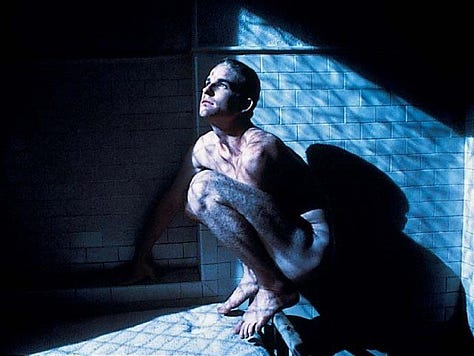
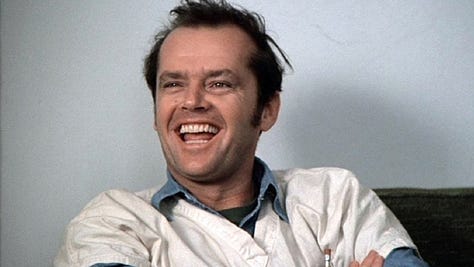
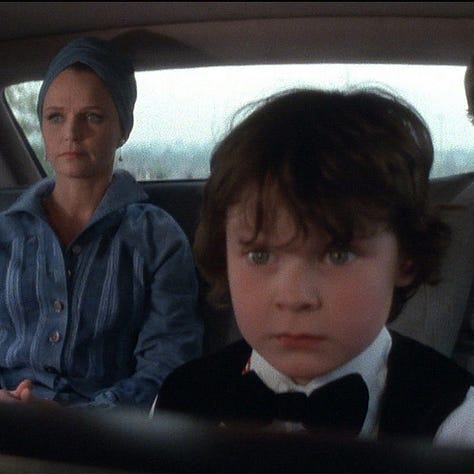
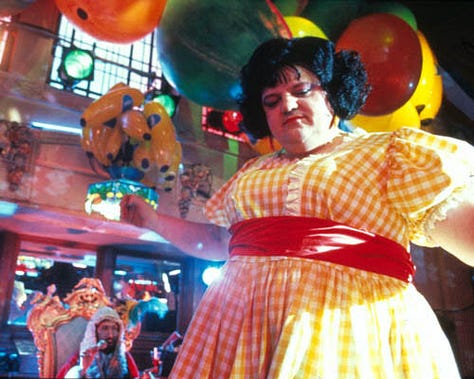
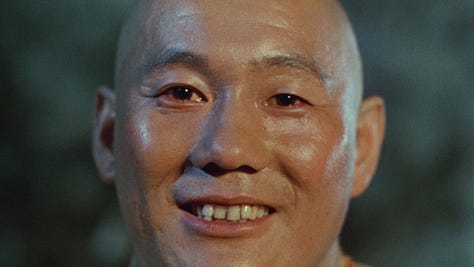
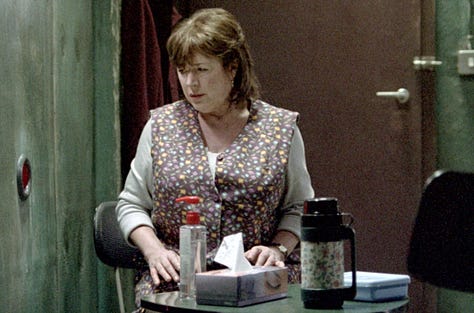
I hope you’ve enjoyed reading this list. I’d love to hear your alternatives in the comments below, or indeed your opinion on any of the movies I’ve included.
Remember that this list - indeed, everything on this substack - is the opinion of an enthusiastic fan and is in no way meant to be definitive.
And I may well contradict myself in the future. What of it? A foolish consistency, as Ralph Waldo Emerson said, is the hobgoblin of little minds.
In fact, I’ve enjoyed writing this piece so much, I may actually watch all these movies again tomorrow.
Whaddaya think of THAT, Flo-Pu?
“Not even going to dignify that with a response”
Closing Credits
All the above films are available on one streaming service or another or - even better if you have the money - as a DVD or blu-ray on ebay or other online shopping service.
The advantage is that your hard copy cannot be legally taken away from you, unlike a downloaded copy on certain multinational streaming services named after rivers.
The choice of music in a film or TV show fascinates me as much as the visuals and the dialogue.
I’ve put together a short Spotify playlist with music from each of the above films (except Irina Palm which I couldn’t find on Spotify, but I’ve included a Youtube link to the excellent soundtrack by Belgian band Ghinzu, which I don’t think ever got a commercial release. A couple of years later, they did provide the song that plays over the end credits of the Liam Neeson thriller Taken, though.
Other film-related posts you may like:
Seven characters who took the sudden end of a relationship very well, considering.
00001101 Computer Gamer films / TV Shows
Also:
Excerpts From A Cluttered Mind #9 (but also check out the rest of 'em!)
“A day without a film is a day wasted” - Dilys Powell

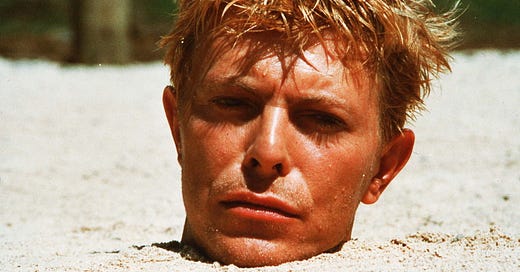



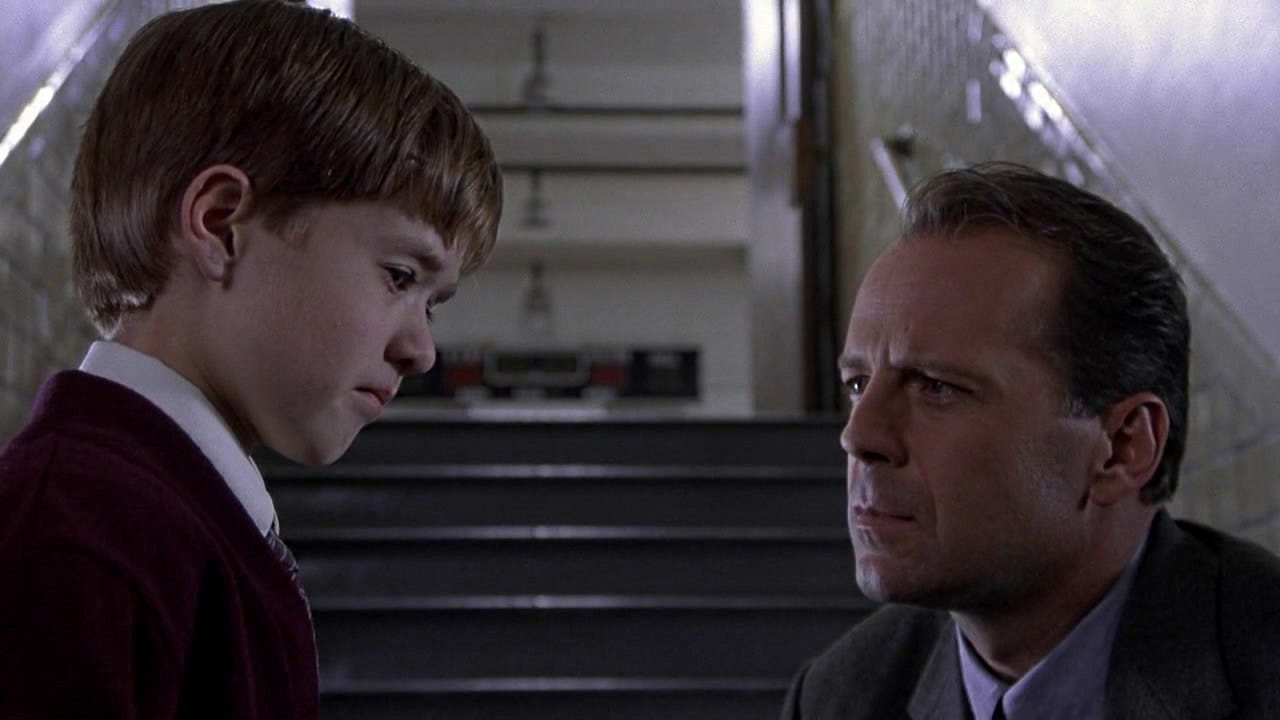
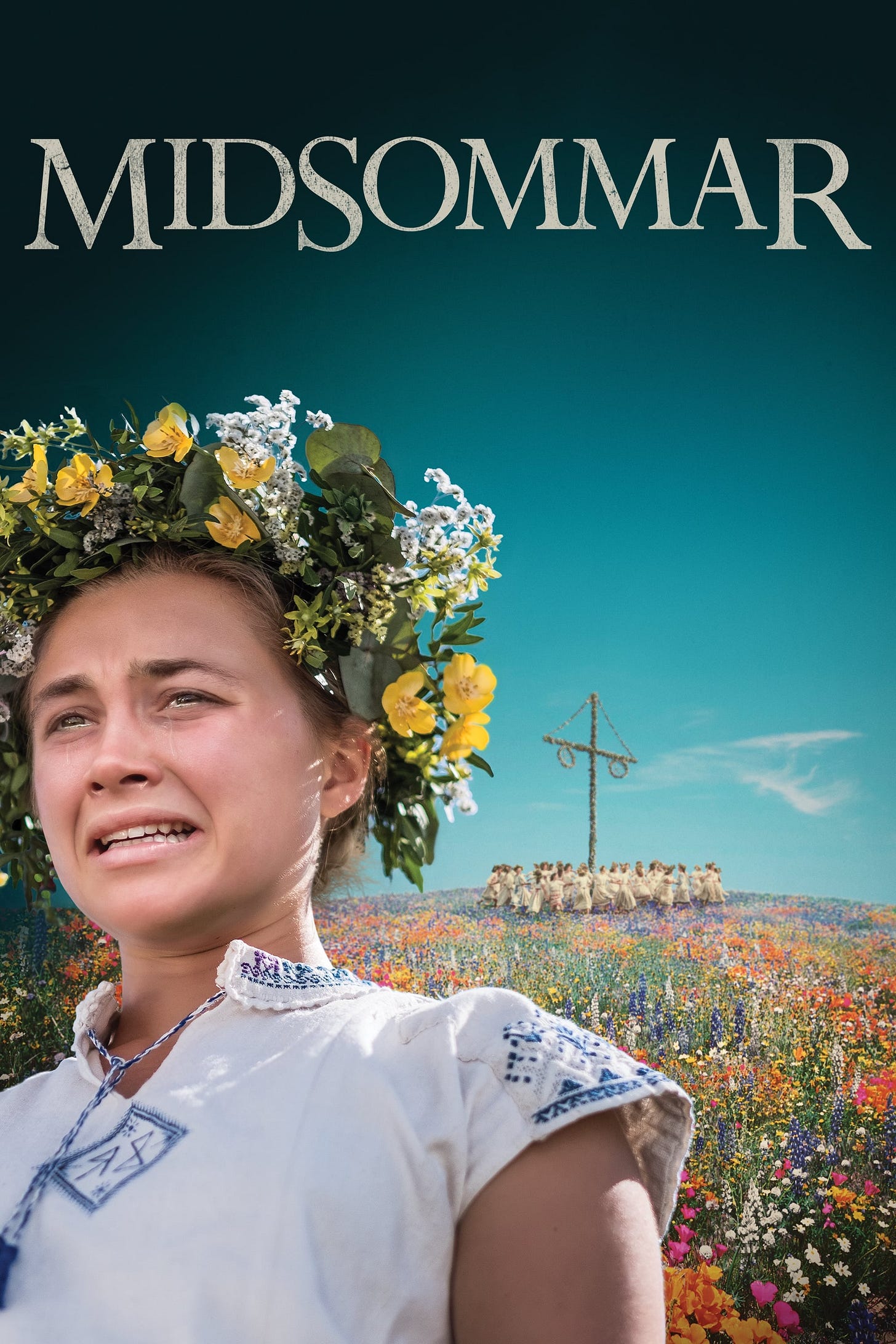
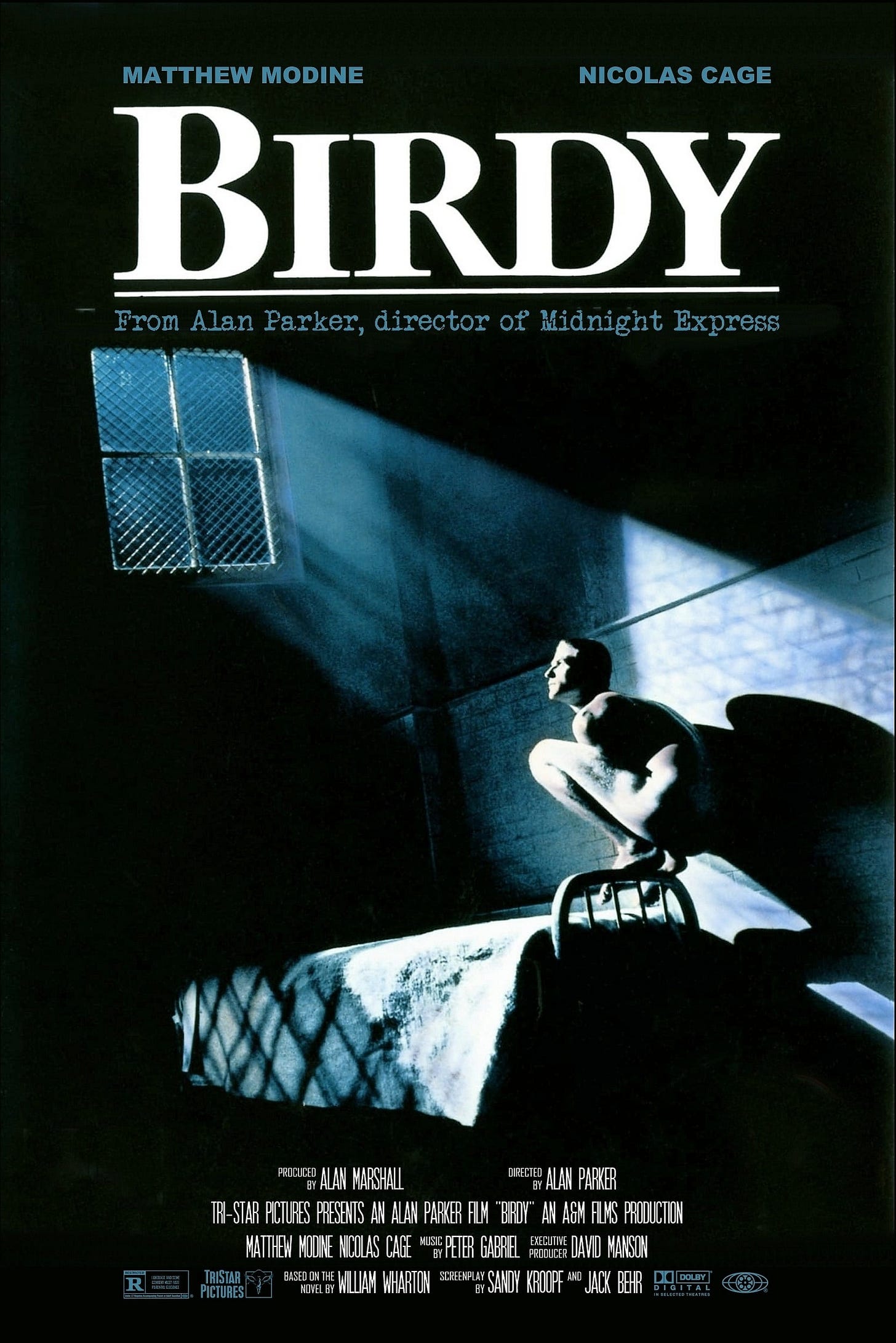
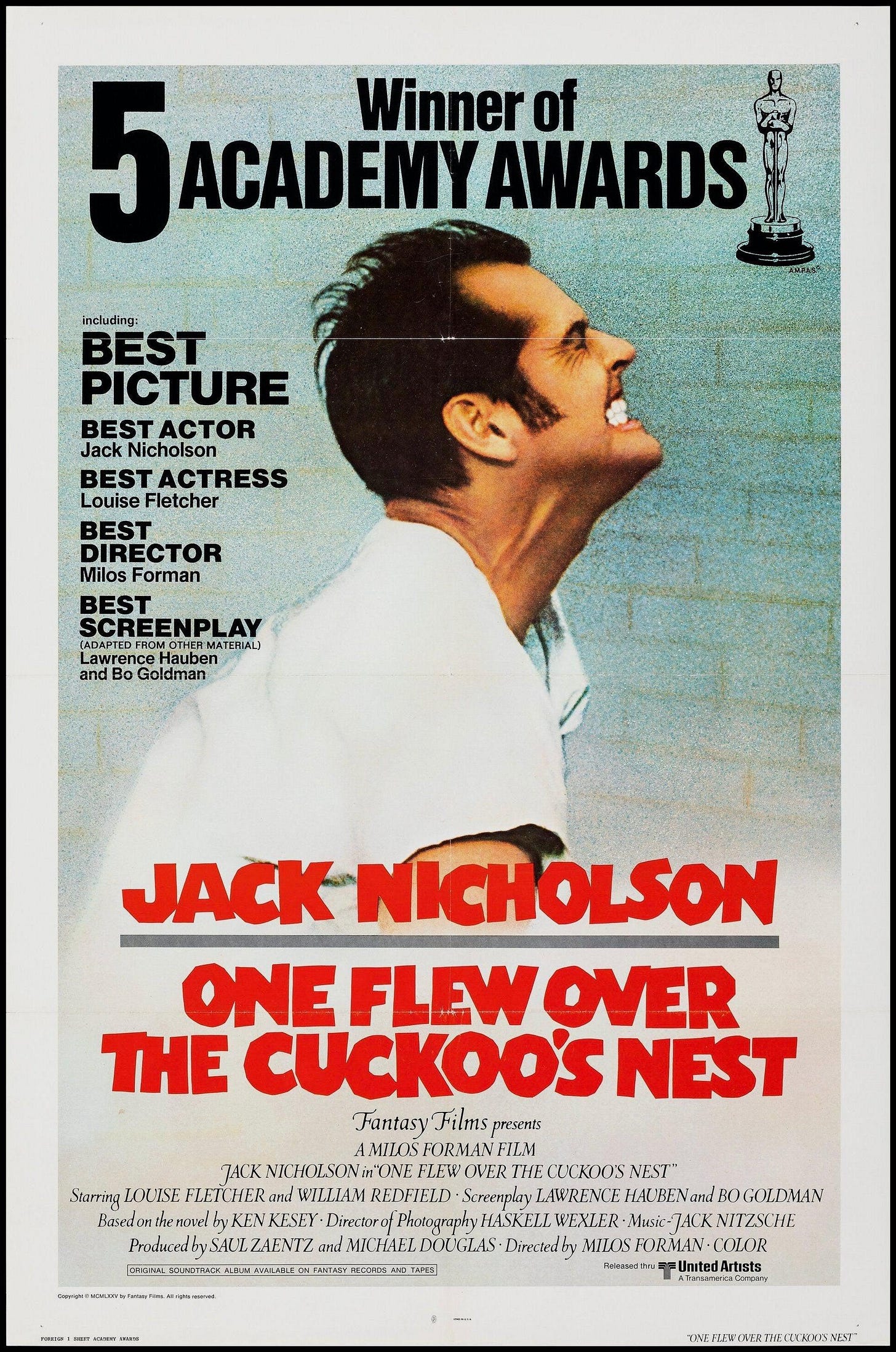
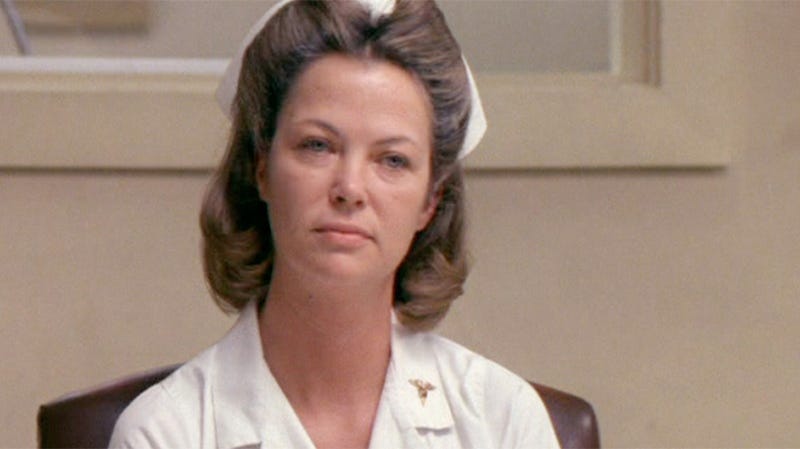

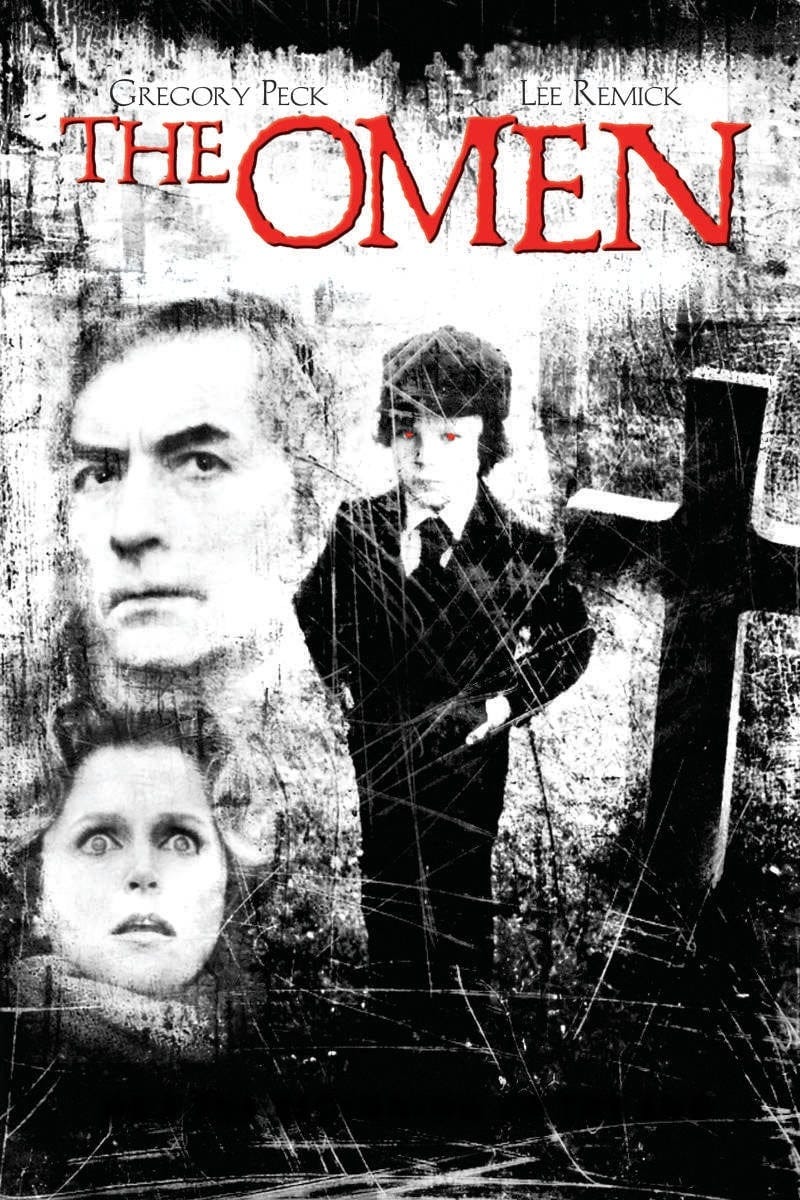
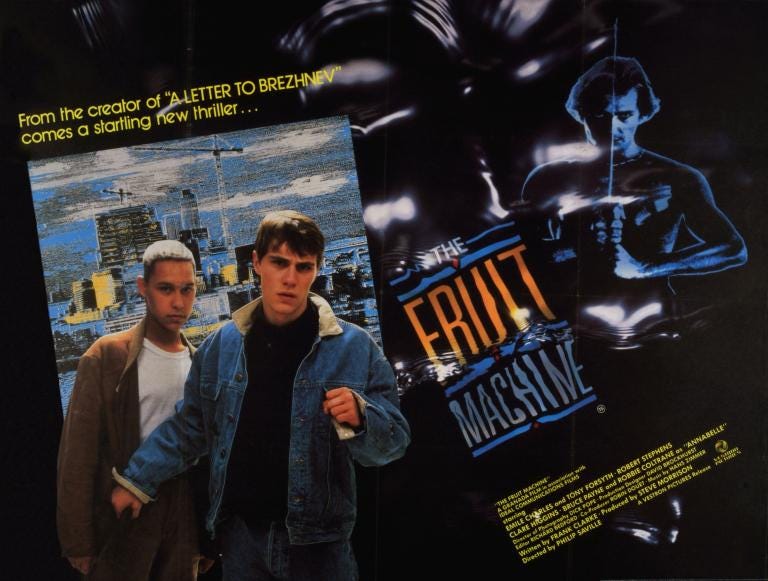
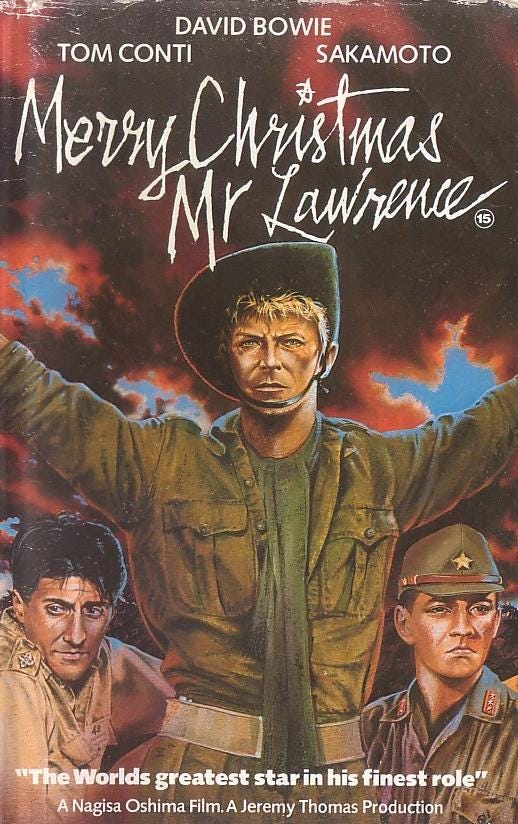
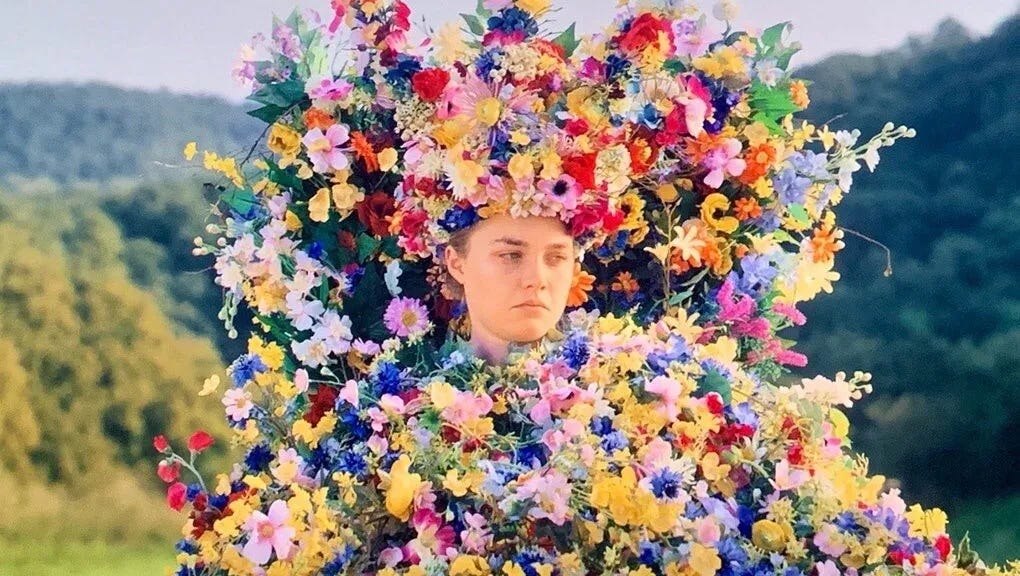
I am not familiar with two of those but Romper Stomper, yeah that's a one and done for sure.
You forgot Dancer in the Dark